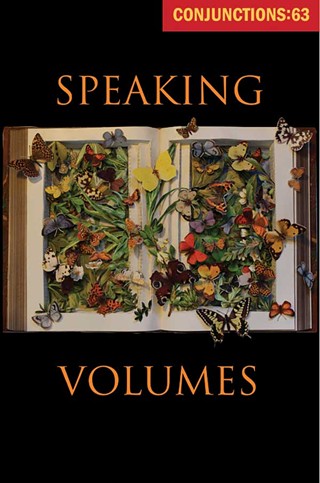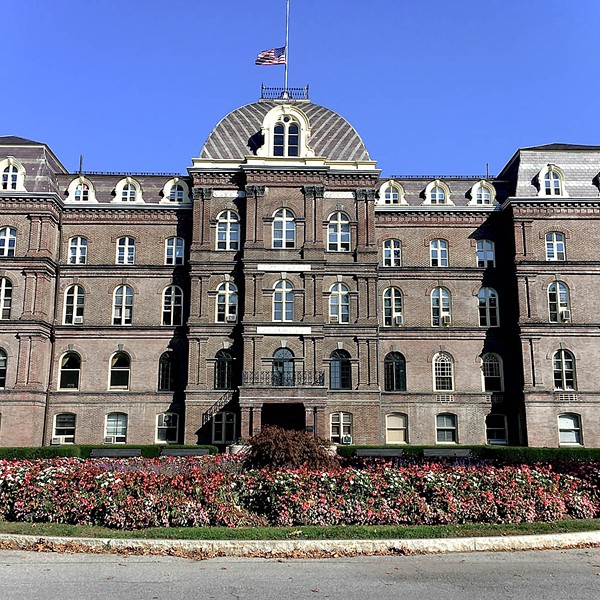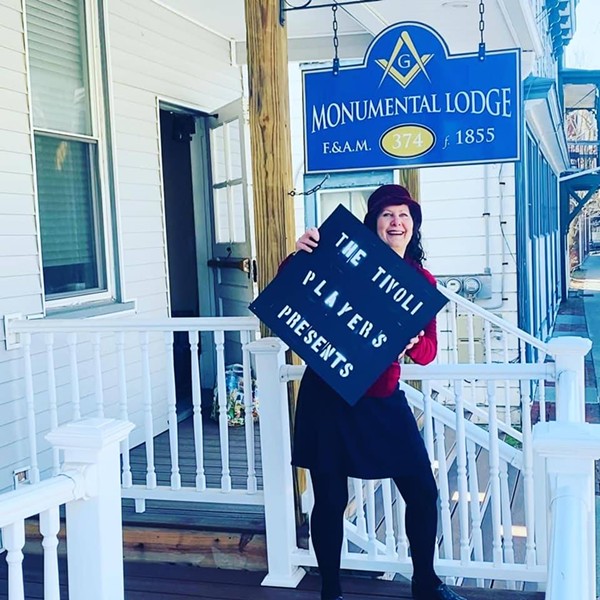"It's a gathering place, a conjoining of voices," says Bradford Morrow, defining "conjunctions"—the name of the literary journal he founded in 1981 with Kenneth Rexroth. Originally intended as a one-off salute to James Laughlin, the publisher of New Directions, Conjunctions continued as a biannual, and when Morrow began teaching literature at Bard in 1990, the journal came with him. To celebrate its 25th anniversary at Bard, a star-studded reading will take place March 26, featuring Ann Lauterbach, Neil Gaiman, Robert Kelly, and Francine Prose—all Bard professors whose writing has appeared in Conjunctions.
Among the luminaries within its 63 issues are Joyce Carol Oates, David Foster Wallace, Edwidge Danticat, Lydia Davis, and Jonathan Lethem. The "Menagerie" issue, which focused on animals, included a 1987 interview with William Burroughs in which the Beat legend revealed his fascination for venomous snakes and love of pussycats.
The journal doesn't run literary essays or book reviews, so the focus is on creation, not criticism. The issues are book-length, 300 to 400 pages, which allows room for longer pieces than most journals can accept. In fact, Conjunctions did a whole issue of novellas in 1994. "It's really like editing an anthology every six months," observes Morrow, who remains the editor. All the material is original—no reprints—and editors are willing to pull manuscripts out of the "slush pile." In some issues, one-third of the writings are unsolicited. Workers at the journal are also talent scouts. Conjunctions has a weekly online edition, available without charge, which began in 1997. (It was one of the first online literary journals.)
Managing editor Micaela Morrissette has been with Conjunctions since she was a sophomore at Bard in 2000. In that time, she can't remember a single typo. (Manuscripts are lovingly passed between editors, assistant editors, and copy editors, snagging all possible errors.) "Once we almost went to press with a story by 'Frank Kafka,' but we caught it at the last minute," Morissette recalls. Why is Conjunctions publishing Kafka?, you may wonder. The answer is: a new translation (in this case, by Breon Mitchell). In fact, the "Radical Shadows" issue introduced writings by Dostoevsky, Proust, Cavafy, Ionesco, and Chekhov that had never before appeared in English.
Morrissette enjoys suggesting themes for the issues, along with the rest of the editorial staff. "We can explore some of our obsessions—as we did in the 'Obsession' issue," she notes drily.
One imagines a "serious" journal being contemptuous of genre writing (mystery novels, science fiction, romance, etc.) but Conjunctions is not. Their "New Wave Fabulous" issue asked sci-fi, fantasy, and horror writers to push the limits of their work—and became the magazine's biggest seller, going through two printings. "In genre, all the imagination is completely unfettered," Morrow remarks. The current Conjunctions includes "Three Little Novels," in which Emily Anderson collages the "Little House on the Prairie" novels into absurd parables:
At last they went in to dinner. There on the table was Mother, cooked in brown gravy and crab-apple jelly.
The Age of the Internet is also the age of poetry readings. More and more people enjoy crawling out from behind their computer screens to sit in a warm room with other literature fans. Conjunctions holds readings in the Hudson Valley, New York City, and is embarking on a far-flung reading series throughout the US. Since last year, readings hosted by Conjunctions are broadcast on the local NPR affiliate, as long as there's no cursing.
The "Conjunctions: 25 Years at Bard" reading will take place at 7pm on March 26 at Olin Hall on the Bard campus. The event is free. (845) 758-7054; Conjunctions.com.

















